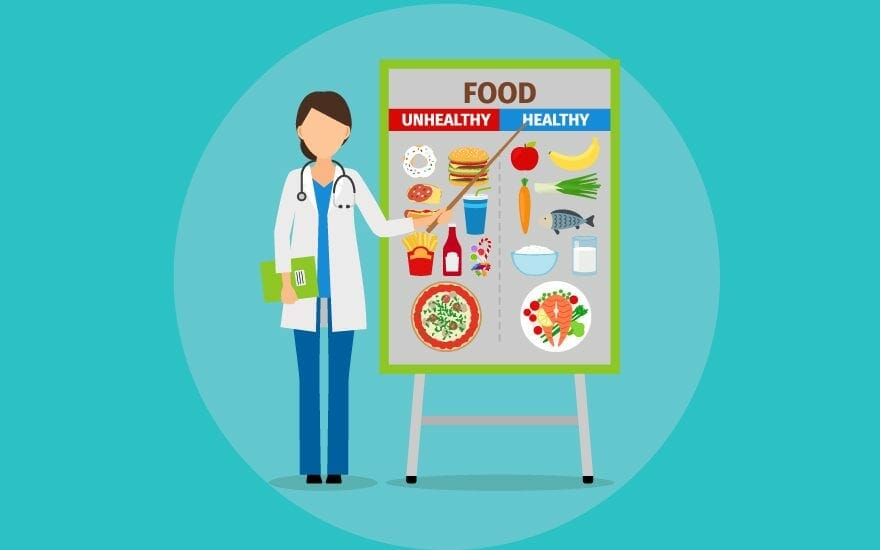Choosing a career is a pivotal decision that can shape one’s life and future. Every profession has its pros and cons, rewards, and challenges. In a world increasingly conscious of health and well-being, the role of a nutritionist stands out. It promises an intersection of science, food, and human interaction. This article aims to provide an unbiased view of the profession, shedding light on whether pursuing nutrition courses is worth the effort and investment.
Understanding the Role of a Nutritionist
A nutritionist is a health professional who offers expertise about food and its impact on health. They often work with individuals or groups to guide food choices, ensuring a balanced diet and promoting overall health. Beyond recommending what to eat, nutritionists delve deep into the science behind food, understanding the nutrients and how they interact with the human body. They also recognize people’s emotional and cultural relationships with food, ensuring that dietary recommendations fit a person’s lifestyle and preferences. This comprehensive approach makes their advice both practical and personalized.
Education and Training
To become a nutritionist, one typically needs at least a bachelor’s degree in nutrition, dietetics, or a related field. Some regions might also require licensure, certification, or registration, which usually involves continuing education and periodic renewal.
The Benefits of the Profession
Making a Difference
One of the most fulfilling aspects of being a nutritionist is the ability to directly influence and enhance the well-being of individuals. Offering guidance on food choices can be a life-altering intervention, leading to better health outcomes for many.
Growing Demand
The rising global consciousness regarding health and nutrition translates to more job opportunities for nutritionists. As people become more health-conscious, the need for expert advice in diet and nutrition increases, offering stability and a plethora of job avenues.
Continuous Learning
The dynamic nature of nutrition science means there’s always something new to discover. This continuous evolution offers endless opportunities for personal and professional growth.
Diverse Work Environments
Nutritionists aren’t restricted to just hospitals or clinics. They can find roles in schools, promoting healthy eating among children; in sports teams, helping athletes optimize their diets; in corporate settings, guiding staff wellness; or even in the media, educating the public about nutrition.
Entrepreneurial Opportunities
With the right skills and experience, nutritionists can set up their private practices. This not only allows them the freedom to be their own boss but also offers the potential for a higher earning capacity.
Global Mobility
The fundamentals of nutrition are universal. A nutritionist can practice in various parts of the world with appropriate certifications and adjustments for regional dietary preferences. This offers the chance for cultural exchange, broadening one’s horizons and understanding of global dietary trends.
Building Community Networks
Nutritionists often collaborate with other health professionals, such as doctors, physiotherapists, and fitness trainers. This multidisciplinary approach helps build a robust professional network, which can benefit career growth and personal enrichment.
Personal Health Benefits
Being immersed in the world of health and nutrition often translates to personal health benefits. Nutritionists are likelier to adopt healthier eating habits, making them role models for their clients and communities.
Challenges to Consider
Rigorous Education and Training
The journey to becoming a qualified nutritionist is long and requires dedication. Completing the necessary education and training can take time and can be expensive, depending on the institution and region.
Emotional Resilience
Dealing with clients who might be facing health challenges can be emotionally taxing. Nutritionists should be prepared to offer support while also maintaining professional boundaries.
Keeping Up with the Latest Research
As touched upon, the field of nutrition is dynamic, with new findings surfacing regularly. Nutritionists have the crucial responsibility of sifting through this sea of information. It’s not just about reading a few articles now and then. It means actively participating in workshops, seminars, and online nutrition courses. Building a network with peers also helps in sharing insights and best practices. While this continuous learning can seem daunting, providing accurate and up-to-date advice is vital. Embracing this aspect of the job ensures that nutritionists remain relevant and effective in their role, offering the best guidance to those they serve.
Financial Prospects
One cannot ignore the financial aspects when choosing a career. The salary of a nutritionist can vary based on location, experience, and specialization. However, with the rising demand and the potential for private consultancy, many nutritionists find the profession financially rewarding.
Final Thoughts
A career as a nutritionist is not just about knowing what foods to eat and which to avoid. It’s about touching lives, fostering healthy communities, and diving deep into the fascinating world of food and its impact on health. The benefits are manifold, extending beyond just job satisfaction to personal growth, well-being, and a chance to leave a lasting impact on society.
